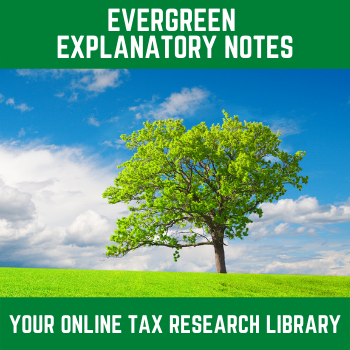Last updated: September 01 2021
How to Determine Whether a Gain is Income or Capital?

Marco Iampieri B.A., JD, M.B.A. with excerpts from EverGreen Explanatory Notes
Your client has just flipped a principle residence, sold a speculative piece of property or traded frequently in his or her TFSA. Is this a business transaction, a capital gain or an exempt transaction? In order to determine whether a gain is of income or capital nature, there is no determinative test. However, there are some clues to follow in anticipating the tax outcome and an important precedent-setting case.
The Tax Court of Canada has historically employed the test developed in Happy Valley Farms Ltd. v. Minister of National Revenue, 1986 CarswellNat 375 in order to determine whether a gain is of income or capital nature:
- The nature of the property sold. Property which does not yield to its owner an income or personal enjoyment simply by virtue of its ownership is more likely to have been acquired for the purpose of sale than property that does.
- The length of period of ownership. Generally, property meant to be dealt in is realized within a short time after acquisition. Nevertheless, there are many exceptions to this
 general rule.
general rule. - The frequency or number of other similar transactions by the taxpayer. If the same sort of property has been sold in succession over a period of years or there are several sales at about the same date, a presumption arises that there has been dealing in respect of the property.
- Work expanded on or in connection with the property realized. If effort is put into bringing the property into a more marketable condition during the ownership of the taxpayer or if special efforts are made to find or attract purchasers (such as the opening of an office or advertising) there is some evidence of dealing in the property.
- The circumstances that were responsible for the sale of the property. There may exist some explanation, such as a sudden emergency or an opportunity calling for ready money, that will preclude a finding that the plan of dealing in the property was what caused the original purchase.
- . The motive of the taxpayer is never irrelevant in any of these cases. The intention at the time of acquiring an asst is inferred from surrounding circumstances and direct evidence is one of the most important elements in determining whether a gain is of a capital or income nature.
Bottom Line: Advisors should understand the nuanced difference between income or capital gains and how they are treated differently under the Income Tax Act; in order to facilitate decision-making when clients are anticipating various financial transactions with their asset bases.
EverGreen Explanatory Notes is the “ever ready” tax research library for advisors, to bring important tax and investment facts to light for more comprehensive conversations between advisors and their clients.
Additional educational resources:
The September 23 Virtual CE Summit will address the issue of Audit Defence: Managing Risk in Compiling Financial Statements, GST & Payroll. Check out the comprehensive online agenda to learn more and enrol online today!
